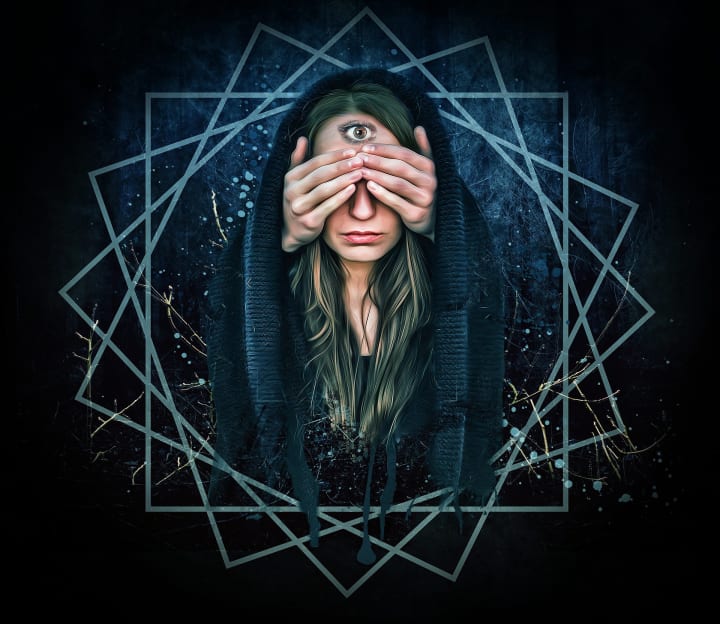What is a Witch?
Exploring Where The Word Came From, And What It Implies

Language evolves over time to fit the needs of the culture that speaks it. Every time a new idea or concept enters that culture, the language changes to embrace it. As time progresses old ideas might fall by the wayside, and the words once used to describe them find new or different meanings. Tracing the definitions and meanings over the years as they spread from one culture to another is a bit like examining the fossil record, showing the full development of a word from what it is today to what it was hundreds of years ago.
That is what it's like trying to track down the meaning and evolution of the word witch. Because while we all have very particular ideas that come to our minds when we hear it, those images are only one facet of the word's journey through the ages.
For more etymological dives, such as What is a Warlock? or What is a Sorcerer?, consider taking a moment to check out my full Vocal archive!
The Modern History of The Word "Witch"

One of the modern assumptions we have about the word witch is that it refers to a wise one ("the ones with the wits" to quote The Halloween Tree). This definition has seen wide acceptance by the neo-pagan movement, and it has been attributed to Gerald Gardner when he was helping lay some of the foundations what would become the Wiccan faith. The person who was actually responsible for this definition, according to The Pagan Library, is Hugh Ross Williamson, who gave us this explanation in his book The Arrow and The Sword which was published in 1947.
This has been one of the most accepted definitions of what witches are, today, and it plays into much of the history of herbalists, medicine women, and others who were forced to dwell on the fringes of society going back to the era of witch hunts, and witch burnings. There's more to this word than a simple summary, however. Especially when you do a little bit of additional digging...
Wicca, Wicce, Wiccian: The Era of Old English
One theory regarding the history of the word takes "witch" back to Old English where the word wiccian (a verb meaning "to practice witchcraft") is seen as the root. Wiccian was divided by gender into wicca (for male practitioners of the art) and wicce (for women who practiced) according to Dictionary. Old English as a language was very specific about which words referred to what kind of magic, and scholars believe there were a variety of terms used to describe practitioners of very specific arts. The three words here go back at least to the year 900, and they form a definite bridge with modern witches in terms of the whole "those with wisdom" argument.
Weikk: The Indo-European Era
Not all scholars are convinced that the witch-wicca link is as far back as the timeline goes, however. Professor Jeffrey Russell included an appendix in his book A History of Witchcraft that tied witch to the older Indo-European word weik. This term is similar to the Proto German term wikkjaz (which means necromancer, or "waker of the dead") and the Old Norse term vikja, both of which have figured into the history of witch according to the Online Etymology Dictionary. According to Russell weik has a general connection to the spiritual and magical, and it is the parent of the word wikk, which specifically refers to magic as a force. According to Russel it is weik that represents the ancient starting point of the word witch, digging back before the era of Old English.
Why Does Any of That Matter?
Words have meaning, and when that meaning changes the words take on different aspects. Weikk and wikk were words that likely had spiritual connotations to them in the distant past. They marked out activities and rituals, as well as people who performed those rituals. The word spread across the continent, influencing societies and languages all across mainland Europe and up into Scandinavia. The words migrated to England, where they laid the groundwork for wicca. By the 1300s or so words like wicca and warlock had taken on very definite devil-worshipy connotations. Those connotations remained for years, until (it could be argued) the more spiritual definition came to the surface once more with more modern faiths attempting to reclaim the roots of these terms.
Knowing all of that makes witches more than long-nosed crones with black cats and flying brooms, don't you think?
About the Creator
Neal Litherland
Neal Litherland is an author, freelance blogger, and RPG designer. A regular on the Chicago convention circuit, he works in a variety of genres.
Blog: Improved Initiative and The Literary Mercenary






Comments
There are no comments for this story
Be the first to respond and start the conversation.